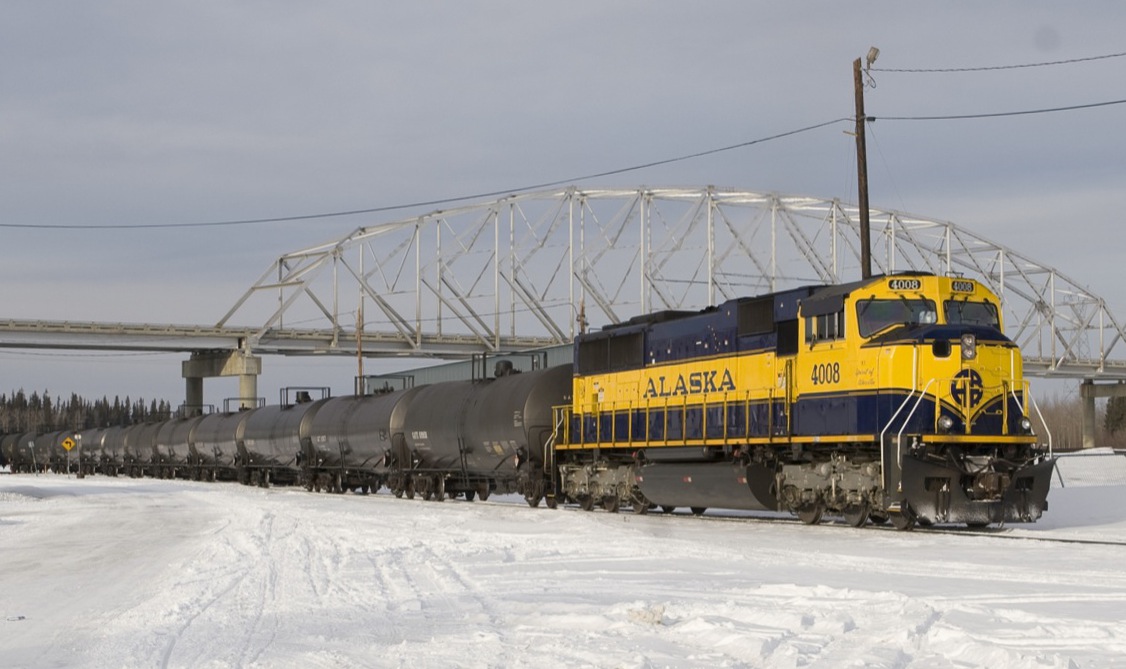|
The Twenty-One Clues
''The Twenty-One Clues'' is a 1941 detective novel by the British author Alfred Walter Stewart, published under his pseudonym J.J. Connington. It is the fourteenth in a series of seventeen novels featuring the Golden Age of Detective Fiction, Golden Age Detective Sir Clinton Driffield, the Chief Constable of a rural English county. It was published by Hodder and Stoughton in London and Little, Brown and Company in the United States.Reilly p.347 Synopsis Two bodies are spotted by an engine driver in some bracken close to the railway line. A man and a woman, unmarried to each other and rumoured to have had an affair despite their respectable backgrounds, have apparently taken part in a suicide pact. References Bibliography * Evans, Curtis. ''Masters of the "Humdrum" Mystery: Cecil John Charles Street, Freeman Wills Crofts, Alfred Walter Stewart and the British Detective Novel, 1920-1961''. McFarland, 2014. * Hubin, Allen J. ''Crime Fiction, 1749-1980: A Comprehensive Bibliogr ... [...More Info...] [...Related Items...] OR: [Wikipedia] [Google] [Baidu] |
Alfred Walter Stewart
Alfred Walter Stewart (5 September 1880 – 1 July 1947) was a British chemist and part-time novelist who wrote seventeen detective novels and a pioneering science fiction work between 1923 and 1947 under the pseudonym of JJ Connington. He created several fictional detectives, including Superintendent Ross and Chief Constable Sir Clinton Driffield. Biography Born in Glasgow in 1880, Stewart was the youngest of three sons of the Reverend Dr. Stewart, Clerk to the University Senate and Professor of Divinity. After attending Glasgow High School he entered Glasgow University, graduating 1902, taking chemistry as his major. His outstanding performance earned him the Mackay-Smith scholarship. After spending a year in Marburg engaging in research under Theodor Zincke, he was elected to an 1851 Exhibition Scholarship and then in 1903 entered University College, London. Here he began independent research. His work, which formed part of his thesis, gained him a DSc degree from Glasgo ... [...More Info...] [...Related Items...] OR: [Wikipedia] [Google] [Baidu] |
Engine Driver
A train driver is a person who operates a train, railcar, or other rail transport vehicle. The driver is in charge of and is responsible for the mechanical operation of the train, train speed, and all of the train handling (also known as brake handling). Train drivers must follow certain guidelines for driving a train safely. Naming British English terms for a train driver include engine driver, engineman, and locomotive driver. The term in North American English is railroad engineer, but the simpler term engineer is more commonly used. Terms for a train driver in other English dialects include locomotive handler, locomotive engineer, locomotive operator, train operator, and motorman. In American English, a hostler (also known as a switcher) moves engines around rail yards, but does not take them out on the main line tracks; the British English equivalent is a shunter. Career progression For many American railroads, the following career progression is typical: assistant ... [...More Info...] [...Related Items...] OR: [Wikipedia] [Google] [Baidu] |
British Crime Novels
British may refer to: Peoples, culture, and language * British people, nationals or natives of the United Kingdom, British Overseas Territories and Crown Dependencies. * British national identity, the characteristics of British people and culture * British English, the English language as spoken and written in United Kingdom of Great Britain and Northern Ireland and, more broadly, throughout the British Isles * Celtic Britons, an ancient ethno-linguistic group * Brittonic languages, a branch of the Insular Celtic language family (formerly called British) ** Common Brittonic, an ancient language Other uses *People or things associated with: ** Great Britain, an island ** British Isles, an island group ** United Kingdom, a sovereign state ** British Empire, a historical global colonial empire ** Kingdom of Great Britain (1707–1800) ** United Kingdom of Great Britain and Ireland (1801–1922) * British Raj, colonial India under the British Empire * British Hong Kong, colonial ... [...More Info...] [...Related Items...] OR: [Wikipedia] [Google] [Baidu] |
Novels Set In England
A novel is an extended work of narrative fiction usually written in prose and published as a book. The word derives from the for 'new', 'news', or 'short story (of something new)', itself from the , a singular noun use of the neuter plural of ''novellus'', diminutive of ''novus'', meaning 'new'. According to Margaret Doody, the novel has "a continuous and comprehensive history of about two thousand years", with its origins in the Ancient Greek and Roman novel, Medieval Chivalric romance, and the tradition of the Italian Renaissance novella.Margaret Anne Doody''The True Story of the Novel'' New Brunswick, NJ: Rutgers University Press, 1996, rept. 1997, p. 1. Retrieved 25 April 2014. The ancient romance form was revived by Romanticism, in the historical romances of Walter Scott and the Gothic novel. Some novelists, including Nathaniel Hawthorne, Herman Melville, Ann Radcliffe, and John Cowper Powys, preferred the term ''romance''. Such romances should not be confused wi ... [...More Info...] [...Related Items...] OR: [Wikipedia] [Google] [Baidu] |
British Mystery Novels
British may refer to: Peoples, culture, and language * British people, nationals or natives of the United Kingdom, British Overseas Territories and Crown Dependencies. * British national identity, the characteristics of British people and culture * British English, the English language as spoken and written in United Kingdom of Great Britain and Northern Ireland and, more broadly, throughout the British Isles * Celtic Britons, an ancient ethno-linguistic group * Brittonic languages, a branch of the Insular Celtic language family (formerly called British) ** Common Brittonic, an ancient language Other uses *People or things associated with: ** Great Britain, an island ** British Isles, an island group ** United Kingdom, a sovereign state ** British Empire, a historical global colonial empire ** Kingdom of Great Britain (1707–1800) ** United Kingdom of Great Britain and Ireland (1801–1922) * British Raj, colonial India under the British Empire * British Hong Kong, colonial ... [...More Info...] [...Related Items...] OR: [Wikipedia] [Google] [Baidu] |
1941 British Novels
The Correlates of War project estimates this to be the deadliest year in human history in terms of conflict deaths, placing the death toll at 3.49 million. However, the Uppsala Conflict Data Program estimates that the subsequent year, 1942, was the deadliest such year. Death toll estimates for both 1941 and 1942 range from 2.28 to 7.71 million each. Events Below, the events of World War II have the "WWII" prefix. January * January–August – 10,072 men, women and children with mental and physical disabilities are asphyxiated with carbon monoxide in a gas chamber, at Hadamar Euthanasia Centre in Germany, in the first phase of mass killings under the Aktion T4 program here. * January 1 – Thailand's Prime Minister Plaek Phibunsongkhram decrees January 1 as the official start of the Thai solar calendar new year (thus the previous year that began April 1 had only 9 months). * January 3 – A decree (''Normalschrifterlass'') promulgated in Germany by Martin Bormann ... [...More Info...] [...Related Items...] OR: [Wikipedia] [Google] [Baidu] |
Railway Line
Rail transport (also known as train transport) is a means of transport using wheeled vehicles running in tracks, which usually consist of two parallel steel rails. Rail transport is one of the two primary means of land transport, next to road transport. It is used for about 8% of passenger and freight transport globally, thanks to its energy efficiency and potentially high speed.Rolling stock on rails generally encounters lower frictional resistance than rubber-tyred road vehicles, allowing rail cars to be coupled into longer trains. Power is usually provided by diesel or electric locomotives. While railway transport is capital-intensive and less flexible than road transport, it can carry heavy loads of passengers and cargo with greater energy efficiency and safety. Precursors of railways driven by human or animal power have existed since antiquity, but modern rail transport began with the invention of the steam locomotive in the United Kingdom at the beginning of the 19th ... [...More Info...] [...Related Items...] OR: [Wikipedia] [Google] [Baidu] |
Bracken
Bracken (''Pteridium'') is a genus of large, coarse ferns in the family (biology), family Dennstaedtiaceae. Ferns (Pteridophyta) are vascular plants that undergo alternation of generations, having both large plants that produce spores and small plants that produce gamete, sex cells (eggs and sperm) in its life cycle. Brackens are noted for their large, highly divided leaves. They are found on all continents except Antarctica and in all environments except deserts, though their typical habitat is moorland. The genus probably has the widest distribution of any fern in the world. The word ''bracken'' is of Old Norse origin, related to Swedish ''bräken'' and Danish ''bregne'', both meaning fern. In the past, the genus was commonly treated as having only one species, ''Pteridium aquilinum'', but the recent trend is to subdivide it into about ten species. Like other ferns, brackens do not have seeds or fruit, but reproduce by spores. The immature fronds, known as ''fiddleheads'', ar ... [...More Info...] [...Related Items...] OR: [Wikipedia] [Google] [Baidu] |
Little, Brown And Company
Little, Brown and Company is an American publishing company founded in 1837 by Charles Coffin Little and James Brown in Boston. For close to two centuries, it has published fiction and nonfiction by American authors. Early lists featured Emily Dickinson's poetry and '' Bartlett's Familiar Quotations''. Since 2006, Little, Brown and Company is a division of the Hachette Book Group. History 19th century Little, Brown and Company had its roots in the book selling trade. It was founded in 1837 in Boston by Charles Little and James Brown. They formed the partnership "for the purpose of Publishing, Importing, and Selling Books". It can trace its roots before that to 1784 to a bookshop owned by Ebenezer Battelle on Marlborough Street. They published works of Benjamin Franklin and George Washington, and specialized in legal publishing and importing titles. The company was the most extensive law publisher in the United States, and also the largest importer of standard English law an ... [...More Info...] [...Related Items...] OR: [Wikipedia] [Google] [Baidu] |
United Kingdom
The United Kingdom of Great Britain and Northern Ireland, commonly known as the United Kingdom (UK) or Britain, is a country in Northwestern Europe, off the coast of European mainland, the continental mainland. It comprises England, Scotland, Wales and Northern Ireland. The UK includes the island of Great Britain, the north-eastern part of the island of Ireland, and most of List of islands of the United Kingdom, the smaller islands within the British Isles, covering . Northern Ireland shares Republic of Ireland–United Kingdom border, a land border with the Republic of Ireland; otherwise, the UK is surrounded by the Atlantic Ocean, the North Sea, the English Channel, the Celtic Sea and the Irish Sea. It maintains sovereignty over the British Overseas Territories, which are located across various oceans and seas globally. The UK had an estimated population of over 68.2 million people in 2023. The capital and largest city of both England and the UK is London. The cities o ... [...More Info...] [...Related Items...] OR: [Wikipedia] [Google] [Baidu] |





